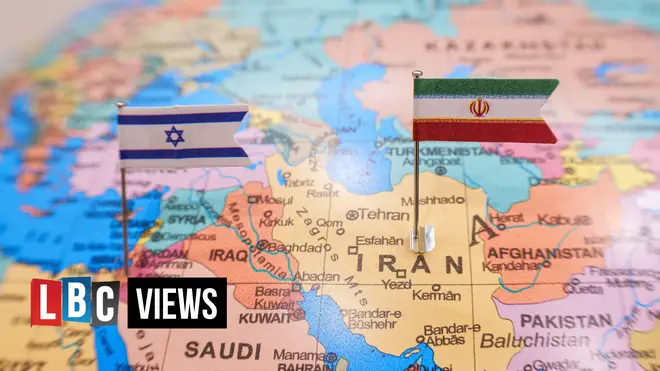
Dean Dunham 9pm - 10pm
16 April 2024, 07:27

Despite continuous attempts to prevent the escalation of the Israeli-Hamas conflict into a broader regional war, this weekend marked the first significant shift in the conflict's dynamics.
Iran launched over 300 drones and missiles at Israel, most of which were intercepted by Israel and its allies.
What sets this attack apart is that it originated not from Iran's proxy forces, but directly from the Iranian government and military itself. Despite these direct assaults, Tehran seemingly aimed not to escalate tensions further, having issued warnings prior to the attack.
Iran justified its actions as retaliatory, responding to Israel's recent assassinations of top Iranian military commanders.
Following the repulsion of the attack with a 99% success rate, Iran's UN mission issued a statement declaring the matter closed and urged the US not to intervene.
The United States and its allies are determined to prevent further escalation in the region, partly due to the potential impact on the upcoming US elections.
A full-scale war with Iran, in addition to the one raging on the European continent, could significantly hinder President Joe Biden's chances of reelection.
Both the UN Security Council and the G7 nations strongly condemned Iran's unprecedented attack and cautioned against future escalations.
Israel's war cabinet engaged in heated debate, with Benny Gantz pledging that Israel would "exact the price" at the appropriate time and manner.
Currently, it appears unlikely that Israel will immediately retaliate against Iran, given the strong international reaction and warnings from allies, particularly the United States, regarding their reluctance to support offensive actions.
However, this does not mean that the situation in the region has stabilised. While Iran attempted to take all necessary precautions to prevent a full-scale war with its attack on Israel, its aggressive stance in the region and bolstering of military capabilities should not be underestimated.
Iran's involvement with the "axis of resistance," which includes its proxies in Yemen, Syria, Iraq, and Gaza, has fueled a covert war against the Western alliance for decades.
With strengthened ties with Russia, collaboration on drone production and ballistic missile supplies, and potential development of its own nuclear arsenal, Iran can no longer be considered an Israel problem.
Despite Biden's strategy of diplomacy with Tehran it is increasingly becoming a US problem too.
It is imperative for the West to not only think tactically about how to prevent incidents like the one that occurred this past weekend transpiring into a broader war in the Middle East but to strategically assess how to counter the growing alliance between Russia, Iran, North Korea, and China.
This alliance poses a significant threat to Western efforts to maintain peace and prevent the outbreak of a third world war.
LBC Views provides a platform for diverse opinions on current affairs and matters of public interest. The views expressed are those of the authors and do not necessarily reflect the official LBC position.
To contact us email views@lbc.co.uk